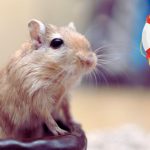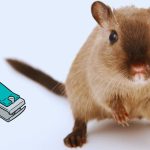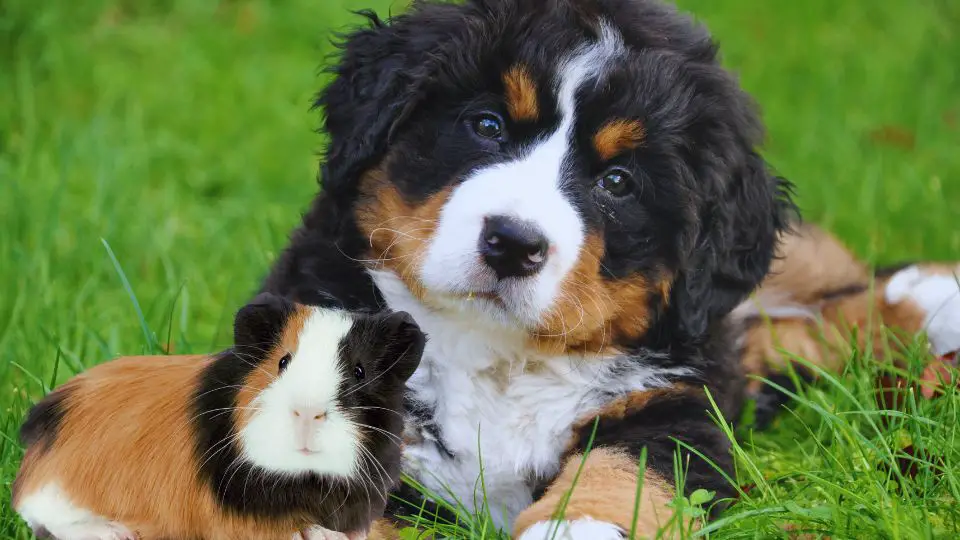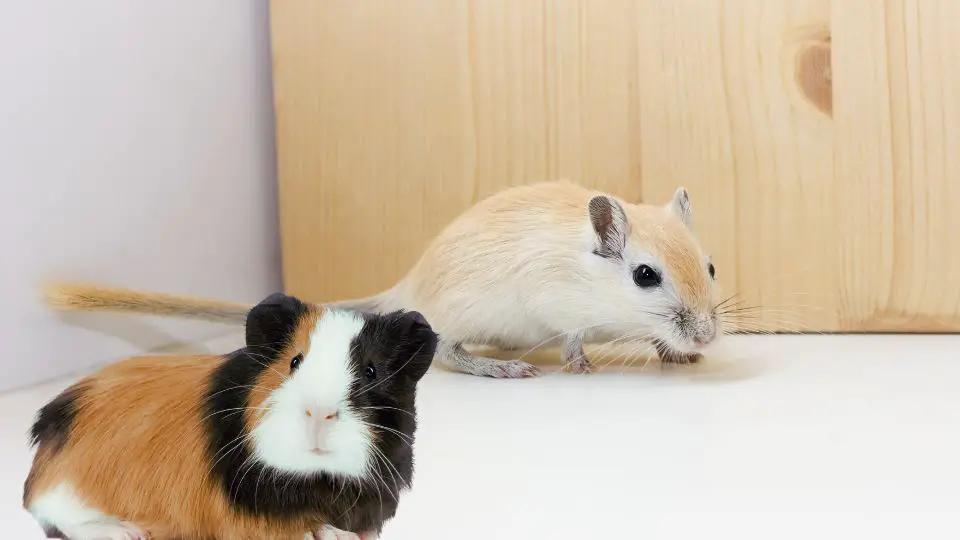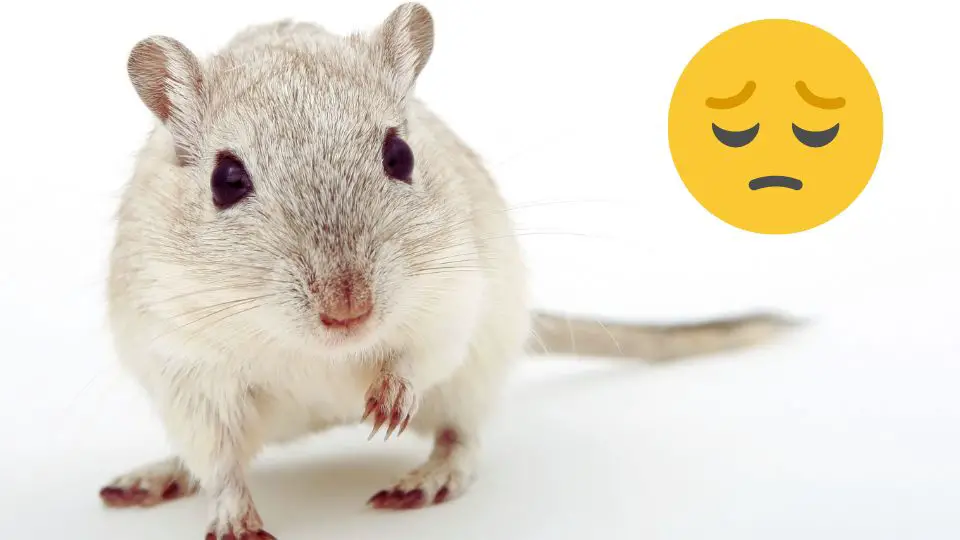Water is an essential element for all living creatures, including gerbils. Adequate hydration is crucial for their overall health and well-being.
Gerbils can typically survive for a few days to a week without water, but it’s crucial to ensure they have access to fresh water at all times to maintain their health and well-being.
In this article, we will explore the topic of gerbils and water deprivation, providing you with valuable insights into their water needs and the potential consequences of inadequate hydration.
Gerbil’s Water Needs
A gerbil can typically survive for about 3-4 days without water. However, note that the exact duration can vary depending on various factors such as the gerbil’s age, overall health, and environmental conditions.
Gerbils, like all animals, need access to fresh and clean water on a daily basis. On average, a gerbil requires approximately 5-10 milliliters of water per day. This can vary depending on factors such as the gerbil’s age, diet, activity level, and environmental conditions. Providing a water bottle or water bowl with a constant supply of fresh water is crucial to meet their hydration needs.
Why is water important?
Water plays a vital role in a gerbil’s body by ensuring proper hydration and supporting various bodily functions. It helps regulate body temperature, aids in digestion and nutrient absorption, lubricates joints, and facilitates waste elimination. Adequate hydration is essential for the overall health, organ function, and vitality of gerbils.
Gerbils obtain water from both their diet and direct water intake. While some water is obtained through moisture-rich foods such as fruits and vegetables, it is still crucial to provide them with a separate source of water. Water consumption may increase during warmer weather, periods of physical activity, or during times of illness or stress.
Factors Affecting Water Deprivation
Water plays a vital role in maintaining hydration, aiding digestion, regulating body temperature, and supporting various bodily functions. While gerbils can survive for a limited time without water, you should understand the factors that can affect their water deprivation tolerance. Here are some key considerations:
Activity Level and Environmental Conditions
The activity level of gerbils and the environmental conditions they are exposed to can impact their water requirements. Gerbils that are more active, such as those with larger enclosures or access to exercise wheels, may require more water to stay hydrated. Additionally, higher temperatures or dry environments can increase their water needs. Monitor your small pet water intake and ensure they have access to fresh water at all times, especially during hot weather or when they engage in vigorous activities.
Diet and Water Content in Food
The gerbil’s diet can also influence their water intake. Gerbils primarily consume dry food, which may have lower water content compared to fresh fruits and vegetables. If the diet consists mainly of dry pellets or seeds, it’s crucial to provide ample fresh water to compensate for the lack of moisture in their food. Offering occasional water-rich treats, such as cucumber slices or watermelon, can also contribute to their overall hydration.
It’s worth noting that gerbils have a natural instinct to conserve water. In the wild, they obtain moisture from their food and have adaptations to reduce water loss. However, in captivity, you have to ensure they have access to an adequate and clean water supply to meet their needs.
Why Is My Gerbil Not Drinking?
Here are some common factors that we know they have a contribution to a gerbil’s reluctance to drink water:
- Environmental Factors: Gerbils are sensitive to their surroundings, and certain environmental conditions can affect their water intake. High temperatures or a dry environment can increase their water needs, while extreme cold or drafts may discourage them from drinking. Ensure that the gerbil’s habitat is maintained at a comfortable temperature and humidity level, providing a suitable environment for them to drink.
- Diet: The type of food your gerbil consumes can impact their water intake. Gerbils primarily eat dry food, such as pellets or seeds, which may have lower water content. If their diet lacks moisture, they may require additional water to compensate. Consider offering water-rich treats like fresh fruits or vegetables to supplement their hydration.
- Water Source: Gerbils may show a reluctance to drink if their water source is contaminated or unappealing. Ensure that their water is clean, fresh, and easily accessible. Gerbils prefer shallow water dishes or sipper tubes that allow them to drink comfortably without the risk of drowning.
- Stress or Illness: Gerbils may exhibit changes in behavior, including a decrease in water intake, when they are stressed or unwell. Stressful events such as a recent move, introduction of a new pet, or changes in their environment can impact their drinking habits. Additionally, certain illnesses or dental problems can make drinking difficult or painful. If you suspect your gerbil is unwell, it’s important to consult with a veterinarian for a proper diagnosis and treatment.
If you’re concerned about your gerbil’s water intake, there are a few steps you can take to encourage them to drink:
- Ensure fresh, clean water is available at all times.
- Place water sources in easily accessible areas of their enclosure.
- Consider offering water in different containers, such as shallow dishes or sipper tubes, to accommodate their preferences.
- Add moisture to their diet through water-rich treats or moistened food.
If your gerbil continues to show a significant decrease in water consumption or exhibits other signs of illness or distress, it’s crucial to seek veterinary advice. A veterinarian experienced in small animal care can provide a thorough examination and offer guidance on addressing the underlying issue.
Potential Consequences of Water Deprivation
Water is crucial for the health and well-being of gerbils. Dehydration, which occurs when a gerbil doesn’t have enough water to maintain normal bodily functions, can have serious consequences on their health. You have to understand the potential risks and consequences of water deprivation to ensure the well-being of your gerbil. Here are some key points to consider:
- Adverse Effects on Health: Dehydration can lead to a range of health issues in gerbils. Without proper hydration, their body systems cannot function optimally. Dehydration can affect their digestion, circulation, temperature regulation, and organ function. It can also impact their overall energy levels and vitality.
- Symptoms and Signs of Dehydration: Be aware of the signs and symptoms of dehydration in gerbils. Common indicators include dry mouth, sunken eyes, lethargy, loss of appetite, weight loss, dry or sticky fur, and reduced urination. If you notice any of these symptoms, it’s crucial to address the issue promptly.
- Timeline for Dehydration Symptoms: The timeline for dehydration symptoms to appear in gerbils can vary depending on various factors, such as the gerbil’s age, activity level, and environmental conditions. In general, gerbils can begin showing signs of dehydration within a few hours to a day or two of insufficient water intake. However, the severity of symptoms and the timeframe can differ from one gerbil to another.
- Impact on Overall Well-being: Prolonged water deprivation can have a significant negative impact on a gerbil’s overall well-being. It can lead to severe dehydration, organ failure, and even death if left untreated. It’s crucial to address any water-related issues promptly and provide appropriate care to prevent such consequences.
If you suspect your gerbil is experiencing water deprivation or dehydration, you should take immediate action:
- Ensure a clean and accessible water source is available at all times.
- Encourage your gerbil to drink by offering fresh water and providing water-rich treats.
- Monitor their water intake and observe for any signs of dehydration.
Conclusion
In conclusion, water is vital for the health and survival of gerbils. While they can tolerate short periods without water, prolonged deprivation can have serious consequences on their well-being. As responsible gerbil owners, it’s our duty to ensure that our furry friends have access to fresh and clean water at all times.
By providing them with a suitable water source, monitoring their water intake, and recognizing the signs of dehydration, we can help maintain their optimal health and prevent potential health issues. Remember, when it comes to water, it’s always better to err on the side of caution and prioritize their hydration needs.


